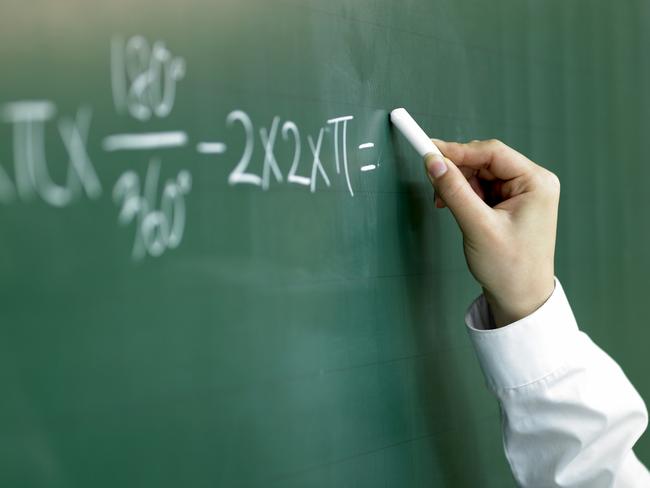HSC Hacks: Senior teacher’s expert tips to nail the Mathematics Standard exam
A top HSC maths teacher has revealed his best advice for students to ace their standard maths exam. See the four things you can do to move to the next band and beyond.
Education
Don't miss out on the headlines from Education. Followed categories will be added to My News.
A senior HSC maths teacher has shared his top tips for HSC students preparing for the maths standard exam scheduled for this coming Thursday.
Head of mathematics at St Augustine’s College, on Sydney’s northern beaches, Matthew Fanning has spent the past eight years teaching mathematics and said the structure of this year’s HSC mathematics standard exam, with it being “less guided” than previous years will require students to show extra “initiative” in their answers order to perform their best in the exam.
SHOW A “DEVELOPMENT OF IDEAS”
For questions that are worth three, four or five marks they will have a couple of sentences and maybe a diagram as well. Previously, there would have been part one and you would have had to develop something that would be one or two marks and then in part two, there’ll be the second part there. Now, we’re asking students to do all those steps on their own initiative so it’s a little less guided as such with these questions.
The one thing that in those questions students really got to show is a development of ideas. In these questions, there’s a lot of text and a lot of comprehension that’s needed so with those questions specifically, it really should be about identifying the broader topic of what this paragraph of text is on and what topic it is underlining the information and then identify what concepts could be applied for the question.

Be prepared for three or four mark questions where instead of writing nothing, they’ve got to try and write a series of things for those questions. They might go down the wrong track, but getting a three out of five is much better than getting stuck at zero or one.
FOCUS ON COMMON CONTENT
The comment content – and this is a big part of both the advanced and standard courses – is worth 20 to 25 marks and is shared between the two courses. These questions are generally the same but sometimes slightly different.
I really ask students that are aiming to change from a band four to a band five or band five to a band six to really focus on the content in the syllabus. That’s the broad umbrella of financial maths, statistics, algebra and measurement.
What we’ve noticed is that the common content is sort of trending towards the later parts of the standard paper. By the natural progression of the paper, these could be or some of the harder questions could be this common content. And that’s where, it could be a three or four or five mark questions and that could be the difference of them getting a band four to a band five and a band five to a band six.
That’s something that we’ve really focused on without with our students trying to get them confident in that specific content because it’s pretty likely those 20 to 25 marks of that exam will be on a few certain things.

KNOW YOUR REFERENCE SHEET
Students really need to know exactly what’s on the reference sheet because the formulas are just listed. It doesn’t name each formula as such so knowing what’s on the reference sheet, even what’s not, and being able to rearrange those formulas is important.
Sometimes it’s all about what information are you finding and what’s not given. You could have a nice formula where what you’re finding is the subject of the equation, but sometimes you are going to be asked to find another part of the equation. You’ll have to then rearrange the formula to make what you’re looking for the subject of the equation- that’s an important skill.
DO QUESTIONS YOU’RE CONFIDENT IN FIRST
Students will have their own way of progressing through the exam but what my tip would be is use the reading time very wisely and pick the questions in the short answer questions that they want to do first that they’re confident in, and that’ll probably take less time. This way they’ll have more time later in the exam to think about the three or four or five marker questions that require a bit of deeper thinking.
I’ll suggest doing the first few multiple choice they’re confident in, followed by the short answer question and then approaching the rest in whatever order that they’re confident in.





